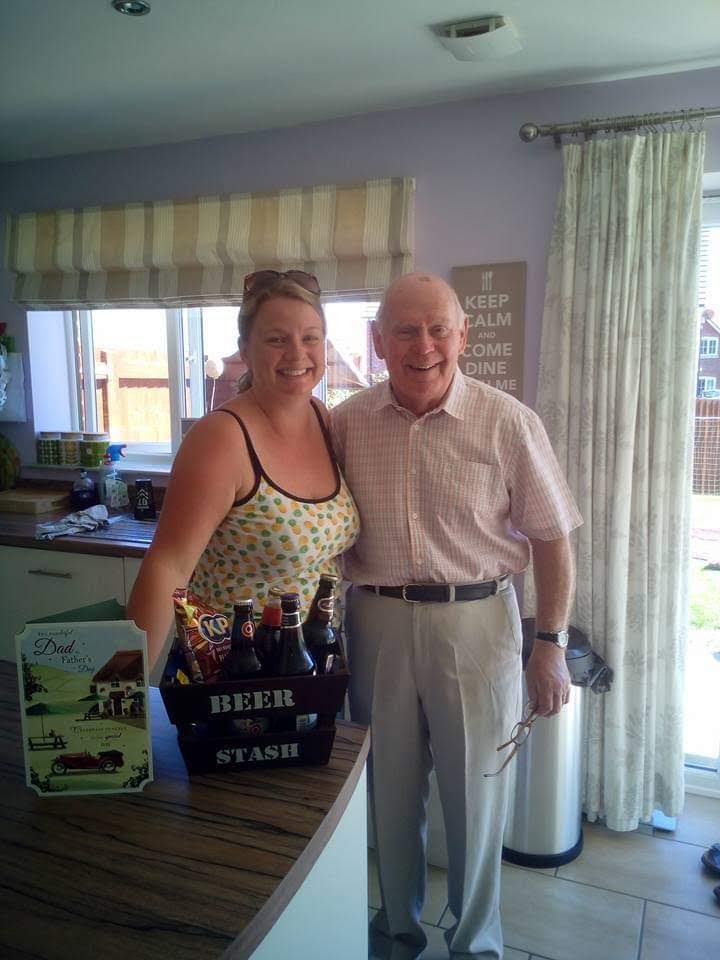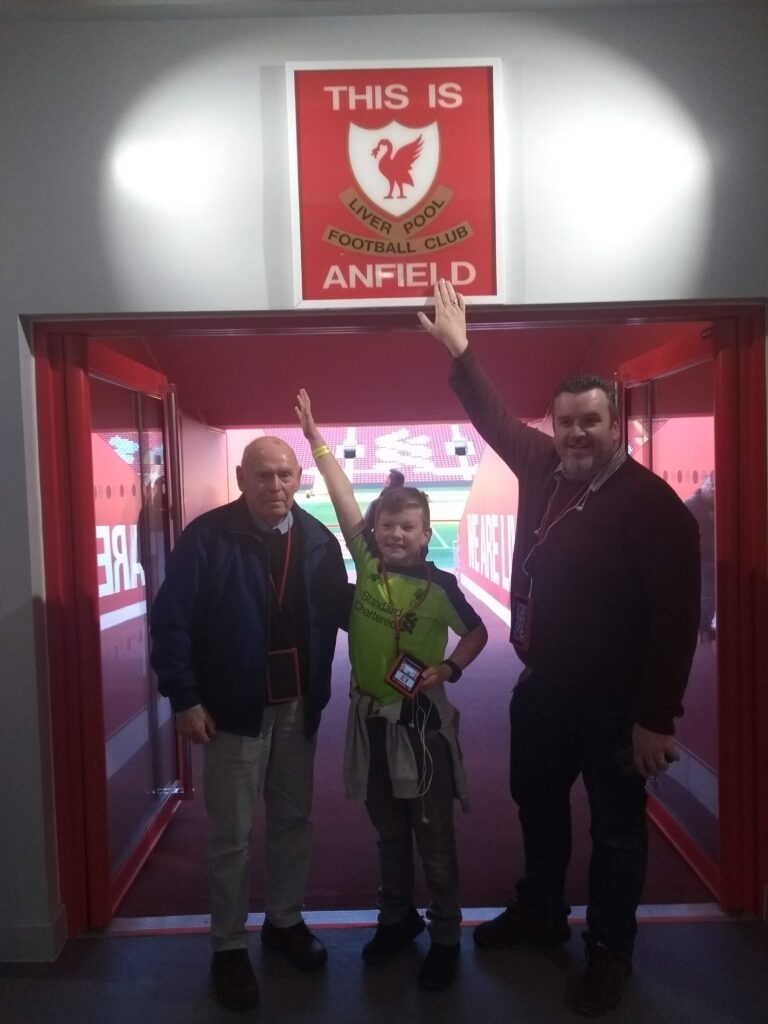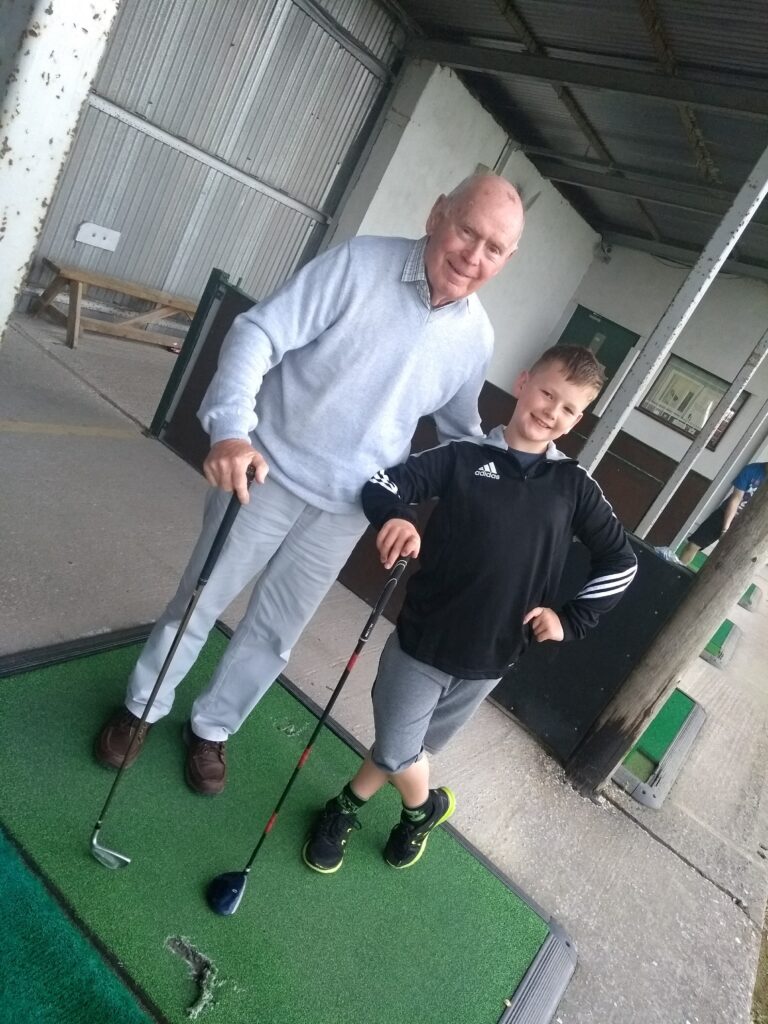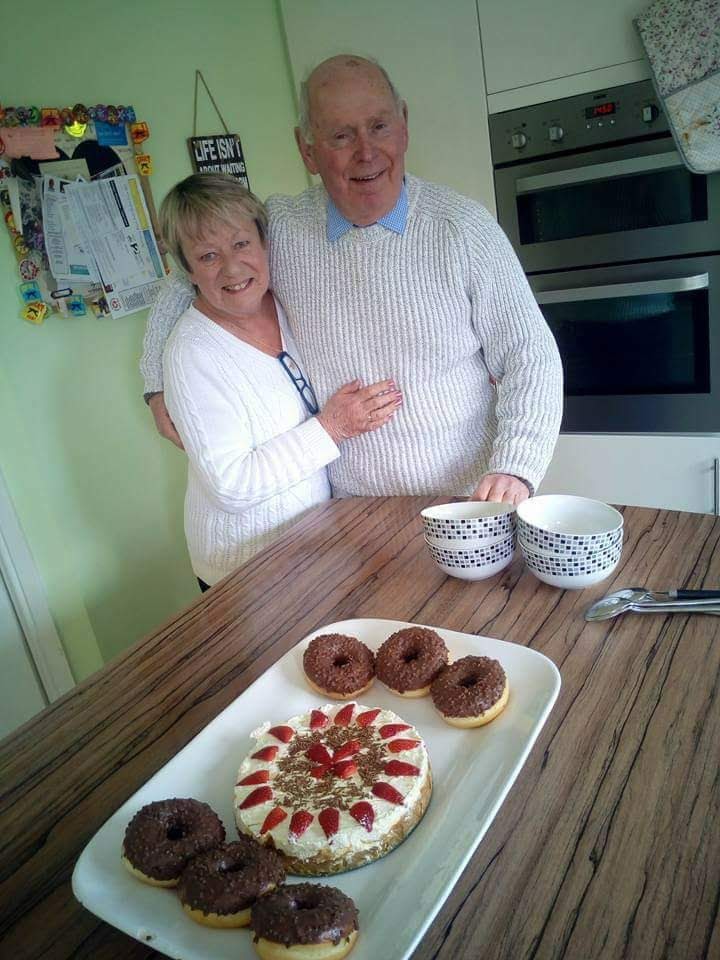
Dad was diagnosed with a tumour on his pituitary gland, following a severe headache which we initially thought may be a bad migraine whilst on holiday in Mallorca in September 1997.
After tests, scans and a week in a Spanish hospital, myself, Mum Pauline, and Dad flew home with Dr Ross from the insurance company straight to our local hospital, Ysbyty Glan Clwyd in North Wales. We were armed with the pack of scans and Dad’s notes all written in Spanish. Our suitcases were piled high in a wheelchair and we looked the healthiest people in the hospital with our holiday tans – even Dad looked the picture of health!
In December 1997, Dad had surgery in Walton, performed by Mr Jeffries to remove the tumour, which was a success. Dad, aged 60 at the time, had questioned Mr Jeffries as to how old the oldest patient was he knew who’d had the same surgery? All Dad wanted to do was live to ‘old age’ – he had so much more to do and had only retired a few months before the holiday to Spain.
In the following 24 years, Dad was looked after extremely well by staff in Walton and Ward 3 staff at the Royal in Liverpool. He took numerous medications, a small price to pay – hydrocortisone, growth hormone, testosterone and desmopressin. His medication was monitored and remained stable, allowing him to continue with his retirement with mum, see me graduate, get married and have a son, William. He was a doting Taid and lived an active and full life – as a JP, vice chairman of the North Wales Police Authority and member of the Trelawnyd Male Voice Choir.

Now that you have the background, the main focus of my story is Dad’s relationship with desmopressin. Of all the medications he took over the years (later in life including heart and Parkinson’s medication), desmopressin was probably the medication that gave him the most significant and instant relief from one of the difficult side effects of diabetes insipidus – thirst!
In the period between the return from Spain and Dad’s surgery in December, Mum and Dad came to visit me at University in York. During their stay it became apparent that Dad was struggling immensely with unquenchable thirst. He would drink bottles of water, juice, pop, anything we could find and was still thirsty. At this point, he had not been diagnosed with DI and was not yet taking desmopressin. For a few more weeks, he drank copious amounts of liquid which did nothing to beat his thirst. At an appointment prior to surgery, Dad was prescribed desmopressin and his life changed. What a wonder drug! Almost immediately his thirst was under control.
On 21 September 2021, at the age of 83, Dad passed away peacefully at home with me and Mum by his side as he wanted. ‘Old age’ was cited as the cause of death on his death certificate – he would’ve approved of this, having been so worried that the tumour would take him in the prime of his life back in 1997.

Although peaceful, Dad’s passing did have some complexities related to the drugs he was taking and this is the important part of the story I would like to share. District nurses and the GP were amazing in Dad’s last few weeks and we were able to plan. It was inevitable that he would need a syringe driver, and this was ready for him at home. It came to the stage where he was unable to swallow all the pills he needed and his medication was withdrawn. His end of life, palliative plan was in place but one thing we had not considered was how not having desmopressin would affect him at this stage. Dad was thirsty! He was asking for water, he couldn’t swallow it but he wanted it, needed it. He was gulping water and then choking. We could not quench this unquenchable thirst we had not seen since the trip to York. With everything else going on, it took a few hours for my Mum and I to link this with the lack of desmopressin in his system. He was also still passing copious amounts of water for someone with very little inside them!
I spoke with several doctors, nurses and health professionals to relay Dad’s struggles with thirst – it was very difficult to explain as there was very little understanding and general knowledge about this with the professionals I spoke to. I was explaining DI, the impact of the desmopressin withdrawal and at times did not feel heard or understood. I was asked if Dad was in ‘pain’ – my answer was yes – this thirst is his hell, his pain.
I did not want Dad’s final days to be begging for water he could not tolerate and feeling so uncomfortable. Later that day, the syringe driver was prescribed and at last Dad was free of the feeling of thirst. He could no longer speak with us, but he was peaceful and slipped away not long after.
The message I want to share is for patients and families of those who take desmopressin for DI to consider the withdrawal of this wonder drug as part of palliative care. It was something we had not anticipated and, due to our own knowledge and persistence, it was managed quickly. It’s just something less to think about at such a difficult time and if we can help one family with our experience, it is a positive.
Donations in memory of Dad were shared with a local children’s hospice and The Pituitary Foundation as continued education and information sharing is so important.

Editor note: Desmopressin as an injection could be given for palliative care if tablets cannot be tolerated. This could be requested as part of an ‘advanced decision.’ This is sometimes known as a living will and can be of two main types:
• a statement authorising or requesting specific procedures
• a clear instruction refusing some or all medical procedures (also called an advance directive).
What form should an advance decision take?
An advance decision can be a written document, a witnessed oral statement, a signed printed card, a smart card or a note of a particular discussion recorded in the patient’s file. In England and Wales, the decision should comply with the provisions of the Mental Capacity Act if it is to be legally binding.
If you have been affected by this story and would like more support please contact our Information and Support Helpline.







